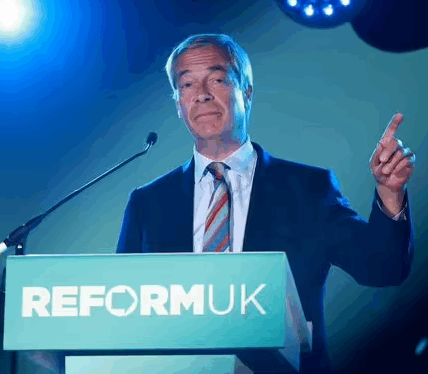In the rapidly shifting global political landscape, one enduring certainty is ever clearer: national economic security means putting Britain first.

Tory MP Sir John Hayes (Image: Getty)
In the rapidly shifting global political landscape, one enduring certainty is ever clearer: national economic security means putting Britain first.
To do so, in demoting the dogma of feckless free trade, economic priority must be to promote the kind of national resilience which serves every corner of our kingdom, from the bustling centres of our cities to the far-reaching expanses of our green and pleasant countryside.
For too long the national interest has been neglected, as flashy financial powerhouses and soulless global corporations promoted globalisation.
The time has come for the Government to recognise the damage done by ruthless globalists.
Don’t miss… Kemi Badenoch issues rallying cry amid fears over Labour’s jobs tax [LATEST]
In a world in which the United States and China are fiercely protecting their industries, Britain must safeguard its interests by flexing its own economic might.
Recent events have exposed the risks of relying on foreign means for essential ends – the importance of national economic security has never been clearer.
We must never again find ourselves unable to produce our own medical supplies, energy, or foodstuffs. It’s time to take back control of our economic destiny.
British workers are more than worthy of fair competition, but our businesses are too often undercut by artificially cheap imports. From agriculture to textiles, pharmaceuticals to carmakers, countless industries have suffered from unfair foreign practices — subsidised production, exploitative wages, and safety regulations that falls far below domestic standards.
We can no longer allow our industries to struggle while power brokers defend what they see as the virtues of so-called “free trade”.
One of my political heroes, Joseph Chamberlain, declared: “We are not going to sacrifice the prosperity of the working classes to the greed of the merchant adventurers.”
His sentiment is key to understanding that a robust tariff regime is not about isolationism but fairness.
British manufacturers and local food producers should not be forced to compete against foreigners who operate with lax (or no!) labour laws or environmental protections.
Carefully targeted tariffs would level the playing field, ensuring that companies in Britain can grow without being stymied by cheap, unethical foreign competitors.
Genuine free trade works when it is fair. When overseas powers use trade as a weapon, we must respond with resolve.
Tariffs are not a rejection of trade rather they are born of a reasonable demand that all global traders operate on the same fair principles.
In the 1950s, Britain was a fortress of self-sufficiency, producing 80% of its own food as tailored financial support and import restrictions protected domestic farming, so ensuring the country’s food independence. Today, less than 40% of our food is produced at home.
In the 1950s, Britain was a leading exporter of all kinds of manufactured goods, from machinery to textiles and cars, with manufacturing accounting for 30% of GDP. Today, the UK’s trade deficit is £32 billion, with goods from hostile powers like China flooding our markets.
Manufacture was once the greatest means of uniting men in a common work. Britain was once hailed as the “workshop of the world” standing as a pillar of industrial might, as the label made in Britain was a guarantee of quality.
This legacy brought pride to those who built businesses and those who worked for them. The time has come to reclaim the strength this great legacy brought.
We must now reinvest in the best of Britian – the industries and workers that can succour our future by securing economic resilience. Prioritising the consumption of homegrown goods would make British products the standard, not the exception.
This rallying cry is not just for economic necessity; it is a call to patriotism. During my time as a Minister, I championed Britian’s cause across all the government departments in which I served, and I have continued to do so because it is common sense that the public sector should make a concerted effort to buy British.
The unyielding shortsighted excuses not to do so have resulted in millions of imported goods being purchased with taxpayers’ money.
Now is the time for a manufactory renaissance. British institutions, funded by British taxes, should be mandated to buy British. Our public sector; from government departments to local councils; from the armed services to the NHS, should lead by example, supporting local economies by purchasing British goods. This is both about bolstering our industries and ensuring food security, traceability, and adherence to the highest quality standards.
Globalisation, fed by a stubborn commitment to unfair so-called ‘free’ trade, certainly benefits greedy multinational corporations, only to the detriment of British industries and British workers.
To make our kingdom secure and resilient we must prioritise our own businesses, jobs, workers, and farmers over the unabated flood of foreign goods.
As I told the Chancellor before Easter, we should begin with public procurement. By ensuring the Government routinely purchases British goods, we could rebuild the foundations of our economy, support British workers, create jobs, so securing the prosperity of our manufacturing towns and our rural counties. Now, more than ever, we must back Britain by buying British.
Sir John Hayes is the Tory MP for South Holland and The Deepings






Most Commented
Join the debate